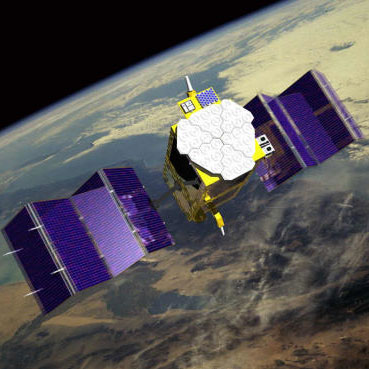Precision satellite navigation will enable rail link construction
Posted: 22 February 2010 | | No comments yet
AXIO-NET wins major contract to enable the construction of a rail link between Germany and Denmark.
AXIO-NET wins major contract to enable the construction of a rail link between Germany and Denmark.
Precision satellite navigation is set to be used in the construction of a motorway and rail link between Germany and Denmark. AXIO-NET, a subsidiary of Astrium Services, has won a major contract to provide satellite positioning data for the development of this 19km link between the islands of Fehmarn, Germany and Lolland, Denmark – the Fehmarnbelt Fixed Link.


Astrium Satellite (Copyright EADS Astrium)
AXIO-NET will establish and operate a four station GNSS reference network across the proposed construction site, which will provide precise positioning data to engineers during the build. Construction of the reference stations is already underway. AXIO-NET, a leader in GNSS augmentation services, won the contract after the German and Danish Governments ratified a treaty to develop a fixed link between the two countries in 2009. The link is expected to become a vital passenger and freight connection between continental European and Scandinavia.
The contract was awarded by Femern A/S, a privately operated company, founded by Denmark’s traffic ministry and owned by the Danish State. AXIO-NET will develop the network with ALLSAT, its 30% shareholder and an expert in GNSS positioning, navigation and monitoring.
The construction of the Fehmarnbelt Fixed Link is a €4.5-5.5bn project and represents a huge engineering challenge due to the sheer scale of the development. The link will have to cross a 19 km expanse of water, be capable of carrying up to 8,000-10,000 cars per day, whilst also accommodating a high-speed rail link. The positioning data provided by AXIO-NET will prove vital in ensuring that engineers can build this vast project to an accuracy of 2cm. The positioning network will have to operate 24 hours a day, seven days a week, with the build expected to take approximately seven years. The link is scheduled to open in approximately 2018.
Eric Béranger, CEO Astrium Services said: “The Fehmarnbelt Fixed Link represents a significant technical challenge. Precision engineering is crucial for a project that spans two countries with Axio-Net playing a key role from start to finish.”
OUT NOW: The Definitive Guide to Rail’s Digital Future
The rail industry is undergoing a digital revolution, and you need to be ready. We have released our latest market report, “Track Insight: Digitalisation.”
This is not just another report; it’s your comprehensive guide to understanding and leveraging the profound technological shifts reshaping our industry. We move beyond the buzzwords to show you the tangible realities of AI, IoT, and advanced data analytics in rail.
Discover how to:
- Optimise operations and maintenance with real-time insights.
- Enhance passenger services through seamless, high-speed connectivity.
- Leverage technologies like LEO satellites to improve safety and efficiency.
Featuring expert analysis from leaders at Nomad Digital, Lucchini RS, Bentley Systems and more, this is a must-read for any rail professional.



